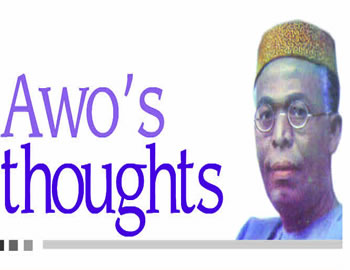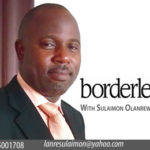IN many parts of the world, the search for a suitable constitution is a perennial exercise.
Because of the effect for good or evil which the working of a constitution is bound to have on the lives of the entire people of a country, and because of the love of power on the part of various individuals and groups in a society, a disproportionately large number of people always called upon and competent to prescribe the requisite formulae for a suitable constitution.
Oyo APC challenges Shittu’s political history
It does not occur to such people that the making of a constitution is a job for experts, and that it requires as much specialised knowledge and skill as the making of a bridge or of a road worthy motor vehicle. They believe that the only qualifications which they need to have are patriotism, general education, and the urge to power and group partisanship. With the result that, in any country where the search for a new constitution is in progress, there are as many constitutional prescriptions, and as many principles or lack of principles underlying them, as there are articulate group interests.
It is my considered opinion that no suitable and satisfactory constitution can be confidently evolved in this haphazard and free-for-all fashion. I have used the word ‘confidently’, advisedly. If a suitable constitution emerged from such a chaotic and inexpert approach, it would be the result of accident pure and simple, not of confident planning and expectation.
Before Bacon put his imprimatur on the method of induction, mankind had depended for everything it did on trial and error and the rule of thumb. But since his time, the tools of observation, empiricism, analysis, classification, synthesis, and generalisation, have been thoroughly forged and perfected, and can be confidently used, in the investigation of any phenomenon, or in the search for solution to any problem, be it in the fields of natural or social sciences.
Mankind has now reached a stage in its development when it will be inexcusable ignorance, plain stupidity, and unpardonable dishonesty on the part of any society or community to adopt an unscientific approach to any of its problems.
I am fully aware that political scientists have been chary of making generalisations. What they call political theories are mere analyses, classifications, and definitions of past and existing political institutions. They have never gone so far as to deduce laws or principles of general validity, which can be applied to new situations by practising politicians, or by those engaged in the task of drawing up a constitution for any given country.
Man which is the central subject of social sciences, it is argued, is unpredictable and imponderable. He does not, for instance, lend himself to the rigid formation and unchangeably fixed behaviour of the solar system.
Well said. But in spite of the egregious and erratic use of his power of choice or of decision, man is subject to and governed by immutable social laws. This is so because the universe, of which the world in which we live forms a part, is a cosmos. In this ordered system, it can be postulated without fear of contradiction that for every specified effect there is a given cause, and that like causes produce like effects, both in the organic and inorganic world of matters as well as in the still unfathomed depth of the human mind.
The law of supply and demand holds good, and economists do not hesitate to declare and insist on such law, in spite of interference and unpredictable frictions which man has consciously or unconsciously, ignorantly or deliberately, brought into play with a view to thwarting the law. We know for a truth that any individual or group who persistently violates the law of supply and demand, will in long run suffer the dire consequences of such violations.
Similarly, any society which persistently violates political laws or principles – whether such laws are recognised and known or not is beside the point – will not, in the long run, escape grievous consequences of its ignorant or deliberate violations.
But political scientists have need to assume a much bolder and more scientific role than political theorists and philosophers have done”’hitherto. By the careful and correct employment of the inductive method, they should be prepared to make generalisations wherever possible. Undoubtedly, man in his blind caprice and self-interest, may falsify and stultify such generalisations. Even so, it is my considered view that, if the generalisations are validly made, they can only be falsified and stultified in he short run. In the long run, the political principles enunciated will, like the law of supply and demand, be verified and triumphant.
DEFINITIONS: With these introductory remarks, I will now proceed to set out in as clear and authoritative terms as possible, the definitions and meanings of some operative words. These words are not only in current use, but also, both through ignorance and deliberate distortion, have acquired false meanings and applications. With the result that their precise and true connotations are not, generally known and understood.






